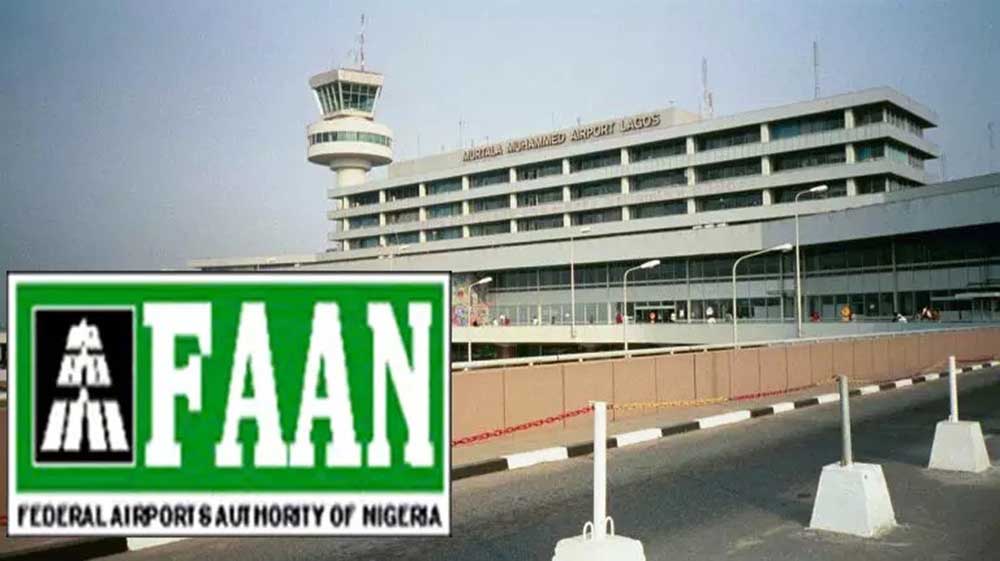Many investors are joining the aviation industry by floating commercial airlines as sector experiences boom in spite of economic contraction, Daily Trust reports.
While some experts attributed the development to rising insecurity, which makes air travel the safest, others said the COVID-19 pandemic was also a contributory factor.
According to them, despite the attrition rate in the aviation sector because of teething problems, airliners in Nigeria are making brisk business in the last few years as they witness heavy traffic of customers.
Apart from people who have the means that always travel by air, middle-income earners are increasingly avoiding road travel because of insecurity.
In the North, for instance, they specifically cited the challenges of travelling from Abuja to Kaduna, Kano, Gusau, Kebbi and Sokoto in the North-West; and Yobe, Borno, Bauchi, Gombe, Yola and Jalingo in the North-East.
Our correspondents report that Boko Haram fighters, bandits and kidnappers have killed many people on the highway while hundreds of passengers lost their lives through road accidents and sectarian crises.
An aviation expert, Shuaibu Ajani, said apart from profit, those that have the means invest in airlines because of increasing demand for air travels.
“There are many corridors in the North-East for instance, because people don’t want to travel by road as a result of insecurity occasioned by Boko Haram,” he said.
“While some businessmen are investing in airlines, state governments are building new airports…In the last 15 years or thereabout, we have new airports in Gombe, Bauchi, Jalingo and Dutse and another one is about to be completed in Damaturu,” he said.
25 investors set to join airline business
So far, about 25 investors have indicated interest to float new airlines, a development that will push the number of airlines in Nigeria to over 50.
Three of the upcoming investors-the North-East Regional Shuttle Limited, Kanem Air and Mambilla Air-are from the North-Eastern part of the country, which has been ravaged by the long-drawn Boko Haram insurgency.
According to public notices, the three airlines are already processing their Air Operator’s Certificate (AOC) with the Nigerian Civil Aviation Authority (NCAA).
Both North-East and Kanem Air in the first week of March, 2021, published names of their Trustees in newspapers indicating they have applied to NCAA for Air Transport License (ATL) to operate scheduled and non-scheduled passenger and cargo services within and outside Nigeria.
Kanem Airline has appointed Ali Gujja as its pioneer managing director while the North-East Shuttle would most likely appoint its MD soon.
Mambilla Air’s Chief Executive Officer (CEO), Alhaji Aliyu Bello Malabu, said in an exclusive interview with the Daily Trust that he will be investing about N500m in equity to resuscitate the carrier which stopped flying in 2011.
He said the Nigerian aviation market is big with increased demand for passenger and cargo planes.
Besides these three airlines coming up in the North East, there are about 22 others that have applied to NCAA for their AOC (licence). One of them is Rano Air, which is part of the AA Rano Group.
Chairman of AA Rano, Alhaji Auwalu Rano, told Daily Trust last night that the company is firming up arrangements to come fully on board as it has commenced shopping for aircraft ahead of the commencement of operations.
Experts differ on implications
Some experts have described the planned entry of the new airlines as a positive development, which would increase the number of aircraft operating in the country while creating more jobs, especially for pilots and engineers.
However, some of them expressed reservations about the viability of the passenger capacity especially with the impact of the COVID-19 pandemic on the aviation market.
Chairman, West Link Airlines, Capt. Ibrahim K. Mshelia, said there was increased awareness among business people to go into aviation.
“COVID-19 rather than deter people from traveling has exposed the need for air transportation. People are beginning to understand the importance of air transportation and are investing in it including in Nigeria. I think the government should support them so that we can have a robust aviation industry.
“To be honest with you, no nation in today’s world can move an inch if they don’t have a solid aviation industry. Security also is a very serious matter without aviation. So, the application for ATL is good. Air Transportation is still a good business. I am sure you are looking at it that passengers are no longer traveling but most of the things we get now are by air cargo. Maybe the new investors want to go into air cargo which is a great business today.
“With the pandemic, air cargo grew. For those of us who do charter, at a point, there was a boom. We had never seen so much demand like that even in normal times. We, in charter operations, didn’t suffer as much as the scheduled operators who were unable to fly with few passengers as we did.
“This is a good time to start an airline business especially cargo operations. Even in passenger service, it is still a great business,” he said.
On his part, the CEO, Top Brass Aviation and former Managing Director, Nigerian Airspace Management Agency (NAMA), Capt. Roland Iyayi, said the timing for new airlines is appropriate.
“Timing of the entry may have been informed by the downturn of the industry generally as it is easier now than before to access aircraft assets cheaply. As a matter of fact, the downturn is the best time to acquire the aircraft assets.”
He also noted that the Northern air market needs additional servicing.
“The northern part of the country is underserviced to a large extent. Therefore, it would provide the opportunity of establishing a niche for prospective airline investors. The plan I presume would hedge the confidence of a timely recovery and niche to project viability.
“How this plays out in the long term would be largely determined by whether or not the economy recovers expeditiously from the current depression,” the aviation expert said.
But the President of the Aircraft Owners and Pilots Association (AOPA), Capt. Alex Nwuba, said Nigeria’s market will not support more airlines, saying the passengers’ figures were decreasing since the COVID-19 pandemic.
“In an industry where consumers are complaining, you would be hoping that the new ones would come and do it better but at the end of the day, the market can’t support 25 airlines. It can’t even support 15 airlines; everybody would lose because the numbers are not going up. They have actually gone down as a result of the new COVID economy.
“Now, if people are not making money during COVID economy, how will they make money in the post-COVID economy where supply is increasing and demand is declining?” he asked.
Another analyst and Assistant Secretary of Aviation Roundtable, Mr Olumide Ohunayo, said new airlines were not coming up in Nigeria but all over the world including UAE, Columbia, USA, UK, Italy, Vietnam, South Africa and New Zealand.
He said most airlines were taking advantage of the low cost of hiring aircraft to float their airlines in Nigeria.
Ohunayo recalled that Vietnam stopped processing applications for new airlines, asking them to wait until 2022 in a bid to stop possible glut, adding that Nigeria may reach this position.
“Suppliers and the aircraft lessors are giving good discounts because of this. Investors are propelled to go and get aircraft and their spares, engines and other components. Prices for aircraft leasing have dropped and this has encouraged people to put forward their plans.
“Again, a lot of manufacturers, airlines, training schools have downsized, so the cost of hiring professionals have dropped compared to what was paid in the past and this cutting down has helped because the cost of starting a new operation is much lower than it was two years ago,” he said.
Nigeria set to have 58 airlines
At present, there are 10 scheduled airline operators in the country. They are Aero Contractors, Air Peace, Arik Air, Dana Air, Overland, Azman, Max Air, Med-View, Ibom Air and the United Nigeria Airline which started operations recently. There are also 24 non-scheduled airlines.
If the applications of the 25 prospective airlines succeed, Nigeria is positioned to have at least 58 airlines operating scheduled, non-scheduled and cargo flights.
Other airlines that have almost firmed up their application processes are Green Africa Airways, Nigerian Eagles and Cally Air.
Green Africa, owned by Babawande Afolabi, has a leadership team that includes two well-experienced leaders in the global aviation industry. They are Neil Mills – President and Chief Operating Officer and Kiran Koteshwar – Chief Financial Officer.
Nigeria Eagle on the other hand is an entity registered by the Assets Management Corporation of Nigeria (AMCON) under its aviation portfolio.
However, out of the 25 prospective airlines, it was not clear whether all of them 25 would survive the rigour of the AOC.
It would be recalled that the Chairman, Senate Committee on Aviation, Senator Smart Adeyemi recently called on the NCAA to make the AOC process more rigorous to have airlines that are strong and seriously ready to break even in the sector.

 Join Daily Trust WhatsApp Community For Quick Access To News and Happenings Around You.
Join Daily Trust WhatsApp Community For Quick Access To News and Happenings Around You.


